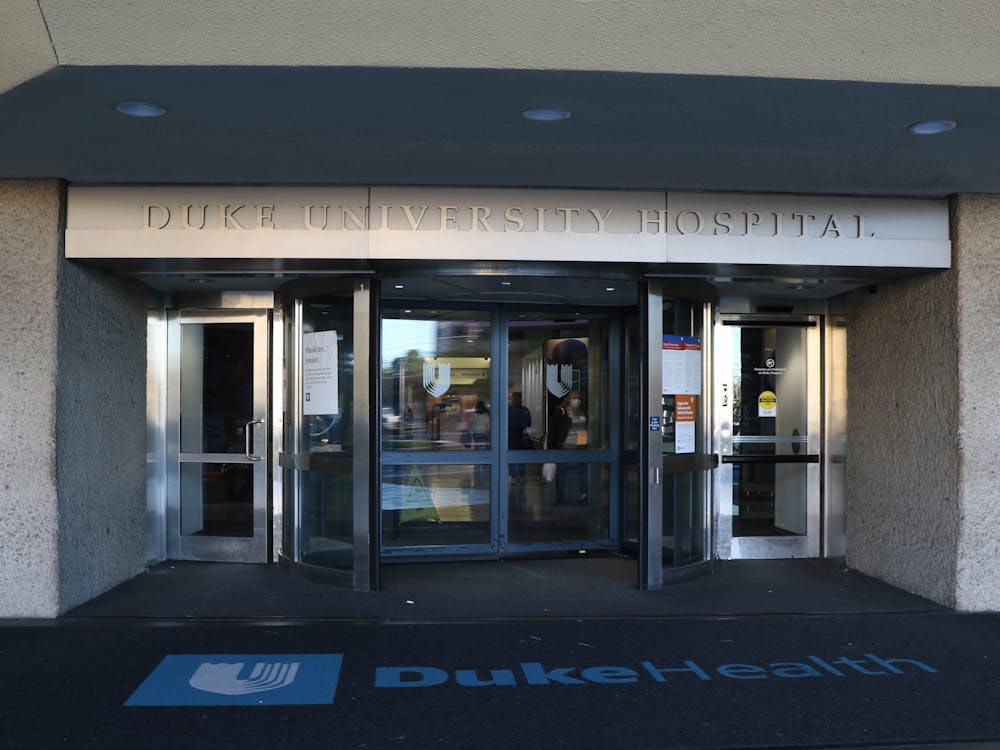On Dec. 1, North Carolina became the 40th state to expand Medicaid access. Now, the state is continuing efforts to increase enrollment in the coverage.
The expansion granted N.C. Medicaid eligibility to adults ages 19 through 64 earning up to 138% of the federal poverty line. The insurance program covers doctor's visits and yearly check-ups, as well as emergency, dental and mental care.
According to William Bleser, research director of health care transformation for social needs and health equity at the Duke-Margolis Institute for Health Policy, the presence of “uninsured and underinsured” populations in the state makes it beneficial to expand the reach of Medicaid benefits and programs.
Bleser says this can be done “essentially at zero cost to populations who really need them.”
As of Aug. 5 — the last time the N.C. Medicaid Expansion Dashboard was updated — 520,667 of an estimated 600,000 eligible North Carolinians have obtained health insurance through Medicaid, up nearly 21,000 from July. The Medicaid expansion’s full impact is yet to be determined.
According to the N.C. Department of Health and Human Services, 273,000 North Carolinians enrolled on the first day of the program’s expansion, “most of which were part of the family planning population who were automatically moved to full coverage.”
Since the program is relatively new, Bleser expects at least a year will be needed to gather data and determine Medicaid expansion’s initial effects.
“We’re the most expensive country in the world per capita for health care,” said Bleser. “Imagine being a low-income person struggling to keep the lights on and cover your costs, and then you get access to essentially fully covered care … that’s amazing.”
As of Aug. 5, per the NCDHHS’s Medicaid Expansion Dashboard, the highest expansion-enrolled age group is 19 to 29 years old, at 35%. Residents of urban areas make up 62.4% of those enrolled, while 37.6% live in rural areas.
Challenges to expanding health care access
“Medicaid coverage allows people to access needed health services, particularly for chronic conditions that they may have had before their state expanded Medicaid,” said Rebecca Whitaker, a research director at the Duke-Margolis Institute, citing cancer care access and coverage as an example.
To Whitaker, high Medicaid enrollment rates in rural areas of the state suggest that rural outreach initiatives have been successful and that Medicaid particularly benefits these communities. However, she noted that once enrolled, North Carolinians in rural areas may still face barriers to accessing care, such as a lack of health care infrastructure.
Whitaker pointed to an ongoing shortage in primary care workers, which she attributed in part to historic underfunding and burnout from expectations during the COVID-19 pandemic. The American Medical Association estimates that 83 million people nationwide live in areas lacking “sufficient access” to a primary care physician due to the lack of practicing doctors.
Complicating matters further, some populations who previously lacked health coverage — and may have previously been “forced to forego years of care” — hold distrust towards the health care system, according to Bleser.
“You just feel like the system has failed you and left you out, and so you may distrust it,” Bleser said of some populations who were uninsured for years. “So one of the challenges for any state that has a new Medicaid expansion population is newly engaging a population who is not used to engaging you, not used to engaging the health system and may potentially be distrustful of the health system.”
Barak Richman, Edgar P. and Elizabeth C. Bartlett distinguished professor of law and executive core faculty member at the Margolis Institute, believes the NCDHHS is doing a “really good job” getting North Carolinians enrolled.
However, Richman noted that when it comes to solving health care disparities as a whole, the role of Medicaid is limited.
“Over the history of Medicaid, we have not seen any dents in health care disparities,” he said, citing an experiment in Oregon in which expansion of Medicaid access to a random sample of individuals increased health care utilization but did not have a statistically significant effect on physical health.
According to Richman, Medicaid is supposed to provide “financial assurance,” but its ability to do so has been limited by “aggressive” hospital billing that has led to medical debt in the state.
In July, federal regulators approved Gov. Roy Cooper’s plan to reduce medical debt, which would incentivize hospitals to eliminate patients’ medical debt. Cooper’s administration estimated that the plan could eliminate up to $4 billion in medical debt for 2 million low- and middle-income North Carolinians.
Get The Chronicle straight to your inbox
Sign up for our weekly newsletter. Cancel at any time.
Samanyu Gangappa is a Trinity sophomore and local/national news editor for the news department.

